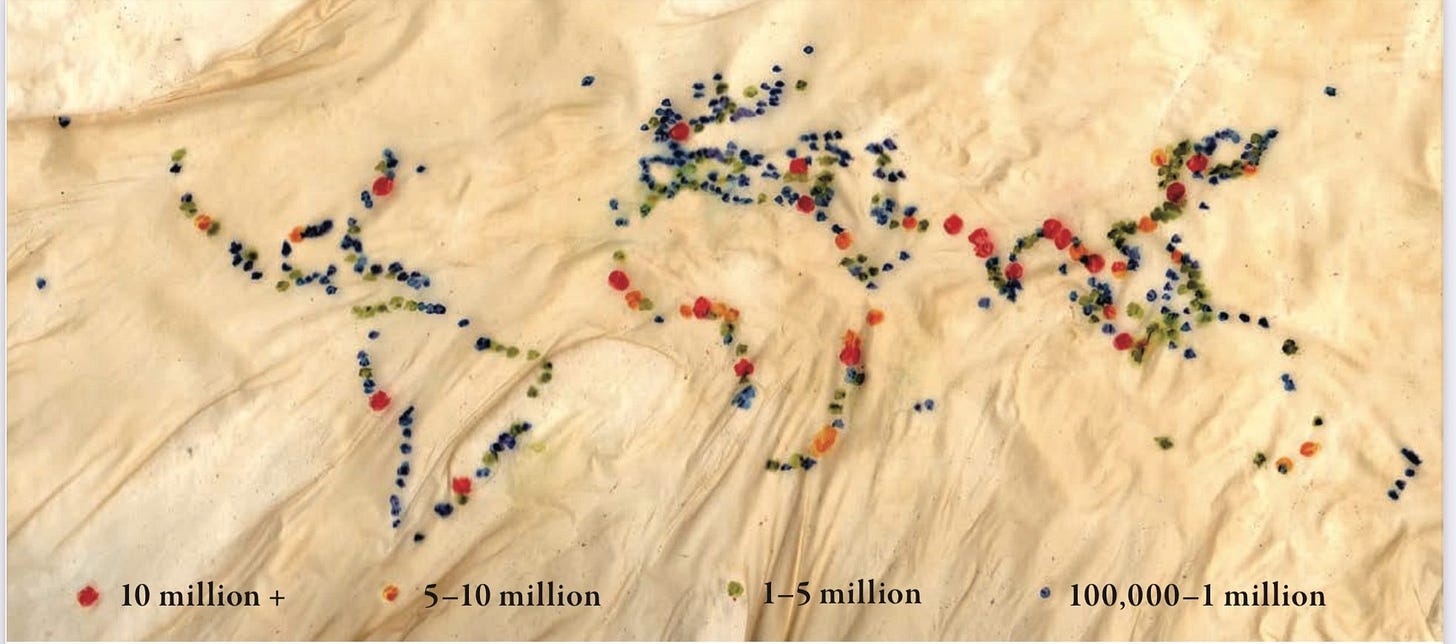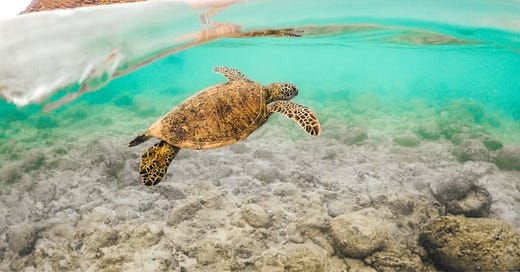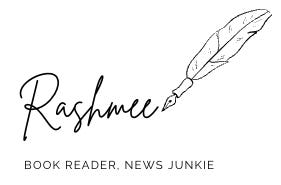Turning the tide for our blue planet
A labour of love illustrated on 'sea lettuce'. And a novel anchored to two coastlines
This Week, Those Books was created to provide context to the news by linking the big international story to the world of books. We now have nearly 11,000 followers in 122 countries on the Substack app. It’s a small operation here at This Week, Those Books and even the smallest bit of reader support matters enormously. If you find TWTB useful, thoughtful, and…a conversation starter, please help sustain us by becoming a paying subscriber.
The Big Story:
The largest ever summit on the world’s oceans ends with a global sprint towards a treaty to govern and protect the high seas, which are under growing pressure from overfishing, climate change and a unilateral threat by Donald Trump’s America to mine international waters.
The UN Ocean Conference,1 co-hosted by Costa Rica and France in the French port city Nice, heard that 51 parties2 including the European Union bloc have ratified the high seas treaty. It requires 60 countries to formalise the accord but France’s President Macron says “it’s a done deal”.3
At the conference, nearly 100 countries issued the ‘Nice wake-up call’4 for an ambitious global pact to end plastic pollution when the matter is debated in Geneva in August.5
Around 60 heads of state and government attended, including Brazil’s President Luiz Inacio Lula da Silva and his Argentine counterpart Javier Milei. US scientific agencies such as NOAA, the National Oceanic and Atmospheric Administration, were noticeably absent.
Next month’s meeting of the International Seabed Authority, which has jurisdiction over the ocean floor outside national waters, will discuss a global code to regulate mining in the ocean depths.
These books offer context:
The Back Story:
In April, Trump fast-tracked US exploration in international waters, bypassing global efforts to regulate the nascent sector;6 a self-imposed delay on deep-sea mining by China and other countries and an informal moratorium supported by the EU and UK on high seas extractive activity.
High seas means international waters, which make up nearly two-thirds of our oceans. In 2022, nearly 200 countries agreed the ‘30x30’ pledge, by which 30% of the world’s oceans would be protected by 2030. Establishing Marine Protection Areas in the high seas is crucial to reaching 30% of ocean protection.
As of now, just 2.7% of the ocean is effectively protected from destructive extractive activities, according to the non-profit Marine Conservation Institute.
Plastic waste makes up 80% of all marine pollution with UN Secretary-General Secretary-General Antonio Guterres describing the problem as follows: “Every day, the equivalent of over 2,000 garbage trucks full of plastic is dumped into our oceans, rivers and lakes”.
The Earth is 70% water and oceans generate half of the world's oxygen, regulate our climate and provide food for more than three billion people.
The Atlas of Disappearing Places: Our Coasts and Oceans in the Climate Crisis
By: Christina Conklin and Marina Psaros
Publisher: The New Press
Year: 2021
This beautifully illustrated book covers 20 locations across our blue planet, all of which are threatened by the effects of global warming on oceans and coasts.
Some of the stories are set in well-known cities such as New York and Shanghai. Others, like Gravesend, England and Ben Tre, Vietnam, are “quieter corners”. Some are situated in the middle of the Arctic Ocean or Arabian Sea, “where changes are happening out of sight for most of us, and therefore out of mind”.
With oceans facing stronger storms, warmer waters, chemical changes and higher sea levels, this call to action is a labour of love. The authors aren’t experts but enthusiasts. Marina Psaros, climate change planner and educator, notes at the outset that her mother named her after the sea and her father nurtured her love of it. Artist and writer Christina Conklin uses the ocean as both site and metaphor, painting all the maps on sheets of dried ‘sea lettuce’, green macroalgae found in many parts of the world. For this, 40 pounds of wet, briny seaweed had to be hauled to her studio, each sheet washed and laid out to dry to a “brittle, fragile, and luminous” translucent parchment.

It’s a memorable canvas to convey a solemn story. This starts in Kure Atoll, the westernmost islet of the Hawaiian chain, where a 52-year-old female leatherback turtle has “starved to death”. She mistook a blue T-shirt for “a gelatinous snack” and it blocked her digestive tract. We are given the life cycle of the T-shirt: “It began its life as crude oil pumped in Nigeria, Libya, the United States, and Iran…” If we continue on our current same consumption trajectory, the authors warn, “there will be a pound of plastic in the ocean for every pound of fish”.
The piece on the Arabian Sea tells an alarming tale of deoxygenation, a growing “dead zone” that has caused the food web to shift from one kind of one-celled algae to a new omnivorous single-celled phytoplankton species. The fish populations crash and the whole ecosystem is thrown into flux.
Each of the 20 pieces finishes with a speculative “view from 2050” of the problem.
Choice quote:
“View from 2050: The Plastics Century (1950–2050), which took flight with the Baby Boom and soared for decades, has played out in some surprising ways in its second half. In the early decades of the twenty-first century, scientists made the connection between petrochemical production, the pervasive use of plastics, and rising cancer rates, but it took many years for regulators and the public to take these health impacts seriously”.
By the Sea
By: Abdulrazak Gurnah
Publisher: Bloomsbury
Year: 2001
This is a tale of exile, a key theme in Nobel literature laureate Abdulrazak Gurnah's writing.
The basic story is simple. A man leaves his home and lives in exile by the sea. The reality is complex.
Saleh Omar is attempting to enter the UK on a fake passport that shows him as Rajab Shaaban Mahmud. Latif Mahmud, a student in the UK, is the son of the real Rajab Shaaban Mahmud. Both narrators eventually come up against each other when a British social worker contacts Latif with respect to Saleh’s case. This wonderful novel acknowledges the uncertain morality of an asylum application while respecting the essential humanity of the applicant.
The word “sea” in the title refers to the way it unites the two halves of Saleh’s life story. He first lived in Zanzibar, by the Indian Ocean, and later, by the sea in an English town.
Choice quote:
“Before maps, the world was limitless. It was maps that gave it shape and made it seem like territory, like something that could be possessed, not just laid waste and plundered. Maps made places on the edges of the imagination seem graspable”.
This post, which features a book on how to put a price tag on a whale, is free to read from the archives:
Write to us: thisweekthosebooks@substack.com
Connect on: LinkedIn | Twitter | Bluesky | Facebook | Threads | YouTube
UN Ocean Conference, June 9 – 13, 2025. https://www.un.org/en/civil-society/un-ocean-conference
Real-time country-wise progress table of high seas treaty signature and ratification. https://highseasalliance.org/treaty-ratification/table-of-countries/
France 24, June 9, 2025. https://www.france24.com/en/environment/20250609-%F0%9F%94%B4-live-macron-opens-un-ocean-summit-in-nice-to-tackle-threats
Negotiations to develop an international legally binding instrument on plastic pollution, including in the marine environment are scheduled from August 5 to 14, 2025 at the Palais des Nations in Geneva, Switzerland. https://www.unep.org/inc-plastic-pollution/session-5.2
Trump’s April 24, 2025 presidential Executive Order titled ‘Unleashing America’s offshore critical minerals and resources’. https://www.whitehouse.gov/presidential-actions/2025/04/unleashing-americas-offshore-critical-minerals-and-resources/









